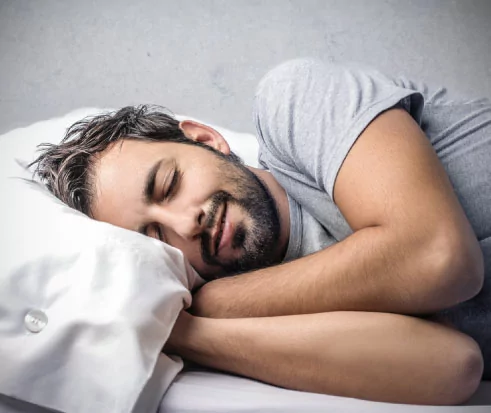
Obstructive sleep apnea (OSA) is a serious disorder, one that impacts many people in the United States and causes sleep deprivation and exhaustion. The disorder also means that our Spring, TX, residents may actually stop breathing for brief periods at night. What causes us to stop breathing and how do we identify and treat sleep apnea?
Snoring and Breathing Cessation
With sleep apnea, the soft tissues in the back of our throats and in our mouths become too relaxed as we sleep. The tissues then collapse and block airflow. We stop breathing completely for brief periods, until the brain wakes us up to resume breathing. Despite happening several times a night, few people remember these episodes. Over time, this causes serious sleep deprivation and impacts quality of life. Warning signs may include chronic snoring, headaches, dry mouth, and episodes of waking suddenly in the night gasping for air or choking. Other warning signs include daytime drowsiness, irritability, and difficulty concentrating on tasks at work or school. If you begin to experience these warning signs, please let us know right away!
Common Causes
What causes snoring and sleep cessation? Excessive alcohol consumption is often a factor, as well as a large neck circumference, over-sized oral structures, sleeping on your back instead of your side, age, and lack of a proper sleep schedule. As part of your treatment, we will take steps to identify the factors behind your poor sleep. In addition, we will diagnose the issue with a comfortable and convenient at-home sleep test, which monitors you as you rest in your own bed, offering the most accurate results possible.
Possible Solutions
How do we treat sleep apnea and ensure you breathe without interruption at night? Often, we offer a personalized sleep solution in the form of an oral appliance. Worn at night, the appliance looks and fits like a mouthguard. The device repositions the jaw to prevent the collapse of soft tissues at night. Patients then breathe without interruption the entire night and avoid further apneic episodes and issues breathing at night. We may also suggest avoiding large meals, exercise, or excessive amounts of alcohol in the two hours before bed. A sleep schedule, going to bed and waking up at the same times every day, is also beneficial. If you have any questions about identifying and treating OSA, then please contact our team today. We want to make sure our patients sleep without difficulty and enjoy a good night’s rest!
Do You Have Questions About OSA?
If you feel exhausted and suffer from chronic snoring, then please let us know as soon as possible. To learn more about treating OSA, call Houston Sleep Solutions in Spring, TX, at (281) 320-2000, or in Pearland, TX, at (832) 564-3508.
